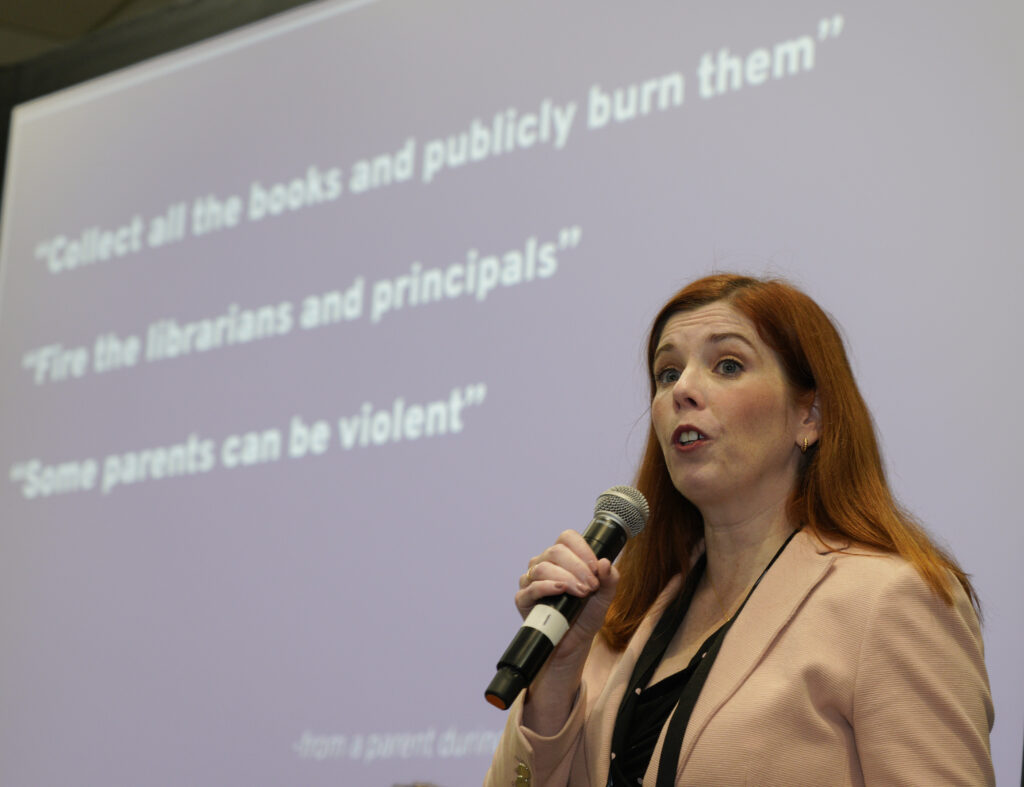When Glenbard Township High School District 87 in Illinois became the target of a drive to ban books from their school libraries, the district’s principals, librarians and staff found themselves in the middle of another contentious front in the culture wars.
But rather than quickly react, district leaders took the opposite route – they slowed things down, addressed the issue deliberately and became transparent in their decision-making.
Those actions helped them weather the storm and district leaders shared their lessons with a conference audience Saturday at the session “Successfully Navigating the Controversy of Book Challenges.”
For Glenbard Township, the challenge began in November 2022 and continued to fester through the following spring. It was an emotional topic at board of education meetings.
Several books were targeted, but eventually the complaints focused on two books about gender identity, Gender Queer and All Boys Aren’t Blue. As the controversy raged, some of the criticism of the district became personal and shocking, with opponents calling for firings and arrests of educators.
“We felt it,” said Jessica Santee, principal at Glenbard South High School. “We definitely felt it.”
But district leaders tried to depersonalize the issue. They relied on their existing district policy that explained the process for how books in schools could be challenged.
That meant people who complained about particular titles would have individual meetings with principals. It was an important move that lowered the tone of the discussions at school board meetings.
“One thing we wanted to be sure of is that we eliminated any possibility of mob mentality in these meetings,” said Santee.

When principals decided to keep the challenged books, complainants were able to appeal the decision to a committee that included principals, parents, librarians and district staff. There were 17 individual meetings with principals and eight appeals to the committee.
In the end, the two books were allowed to remain in the schools and while some complainants weren’t happy with the outcome, they felt heard and didn’t complain about the process, said Melissa Creech, executive director for teaching and learning in the Glenbard Township district.
The panelists said it was important to be transparent with the community. For example, they provided public reports about the decisions and set up an e-mail for people to communicate with them.
David Larson, who is in his 12th year as superintendent of the high school district, urged educators in the room who are dealing with a similar issue to make the most of their established policies, be adaptable, allow an opportunity for feedback and to not react right away, but slow things down and be deliberate.
“We trusted our process,” said Larson.
(Luis Monteagudo Jr. is freelance journalist in San Diego and a reporter for Conference Daily Online.)


